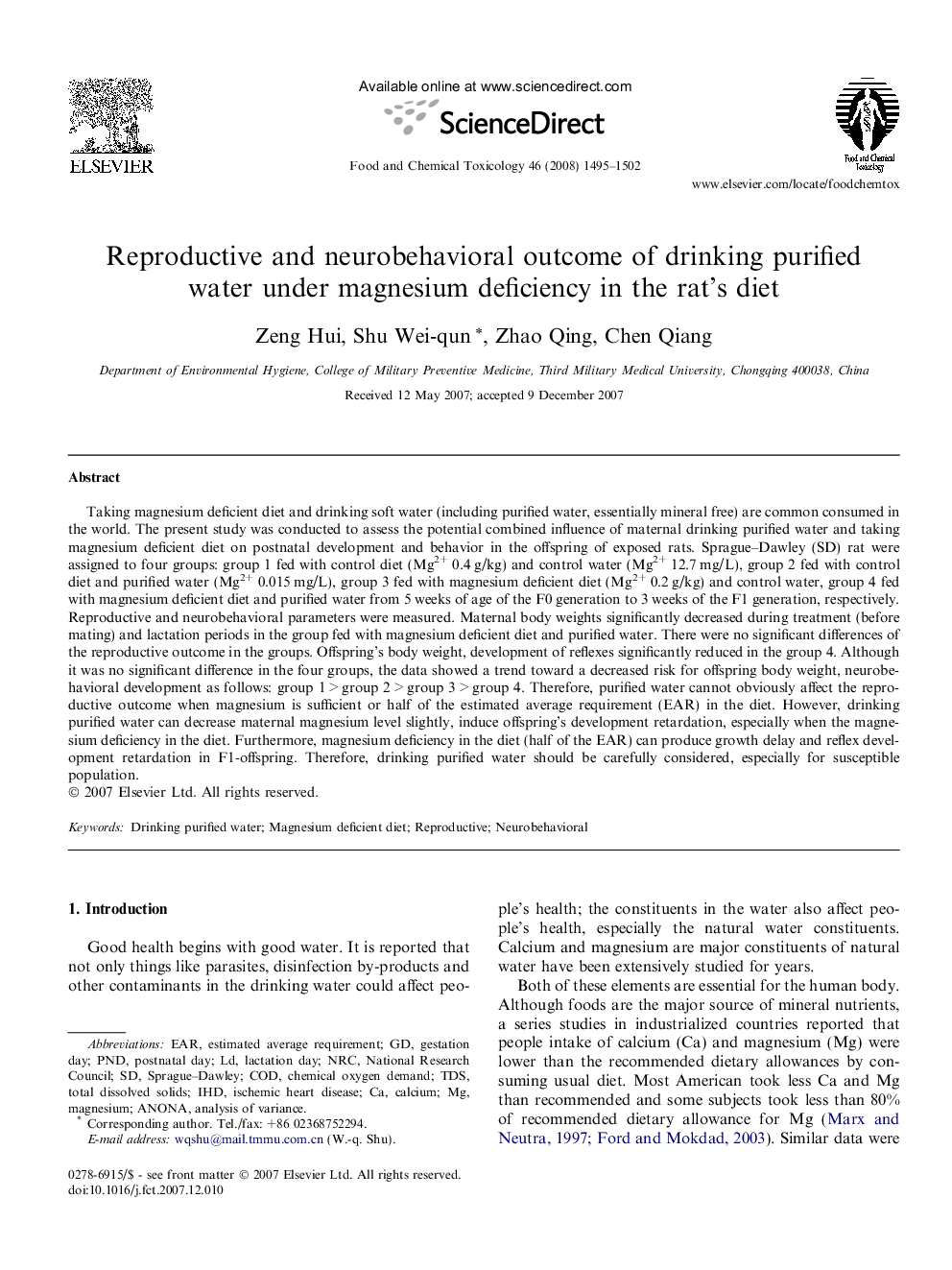| Article ID | Journal | Published Year | Pages | File Type |
|---|---|---|---|---|
| 2587449 | Food and Chemical Toxicology | 2008 | 8 Pages |
Abstract
Taking magnesium deficient diet and drinking soft water (including purified water, essentially mineral free) are common consumed in the world. The present study was conducted to assess the potential combined influence of maternal drinking purified water and taking magnesium deficient diet on postnatal development and behavior in the offspring of exposed rats. Sprague-Dawley (SD) rat were assigned to four groups: group 1 fed with control diet (Mg2+ 0.4Â g/kg) and control water (Mg2+ 12.7Â mg/L), group 2 fed with control diet and purified water (Mg2+ 0.015Â mg/L), group 3 fed with magnesium deficient diet (Mg2+ 0.2Â g/kg) and control water, group 4 fed with magnesium deficient diet and purified water from 5 weeks of age of the F0 generation to 3 weeks of the F1 generation, respectively. Reproductive and neurobehavioral parameters were measured. Maternal body weights significantly decreased during treatment (before mating) and lactation periods in the group fed with magnesium deficient diet and purified water. There were no significant differences of the reproductive outcome in the groups. Offspring's body weight, development of reflexes significantly reduced in the group 4. Although it was no significant difference in the four groups, the data showed a trend toward a decreased risk for offspring body weight, neurobehavioral development as follows: group 1Â >Â group 2Â >Â group 3Â >Â group 4. Therefore, purified water cannot obviously affect the reproductive outcome when magnesium is sufficient or half of the estimated average requirement (EAR) in the diet. However, drinking purified water can decrease maternal magnesium level slightly, induce offspring's development retardation, especially when the magnesium deficiency in the diet. Furthermore, magnesium deficiency in the diet (half of the EAR) can produce growth delay and reflex development retardation in F1-offspring. Therefore, drinking purified water should be carefully considered, especially for susceptible population.
Keywords
Related Topics
Life Sciences
Agricultural and Biological Sciences
Food Science
Authors
Zeng Hui, Shu Wei-qun, Zhao Qing, Chen Qiang,
